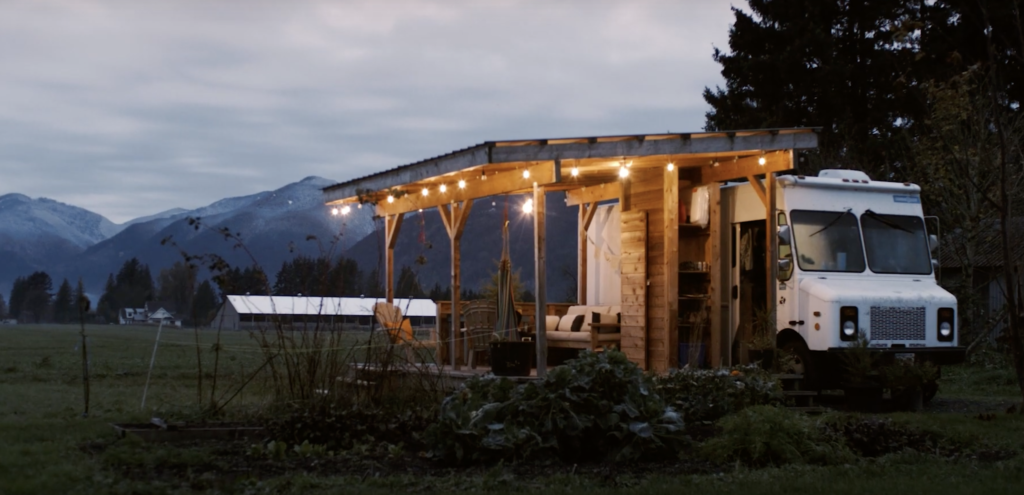Meet the neighbours.
Keep reading to be introduced to more of BC’s dairy farmers.
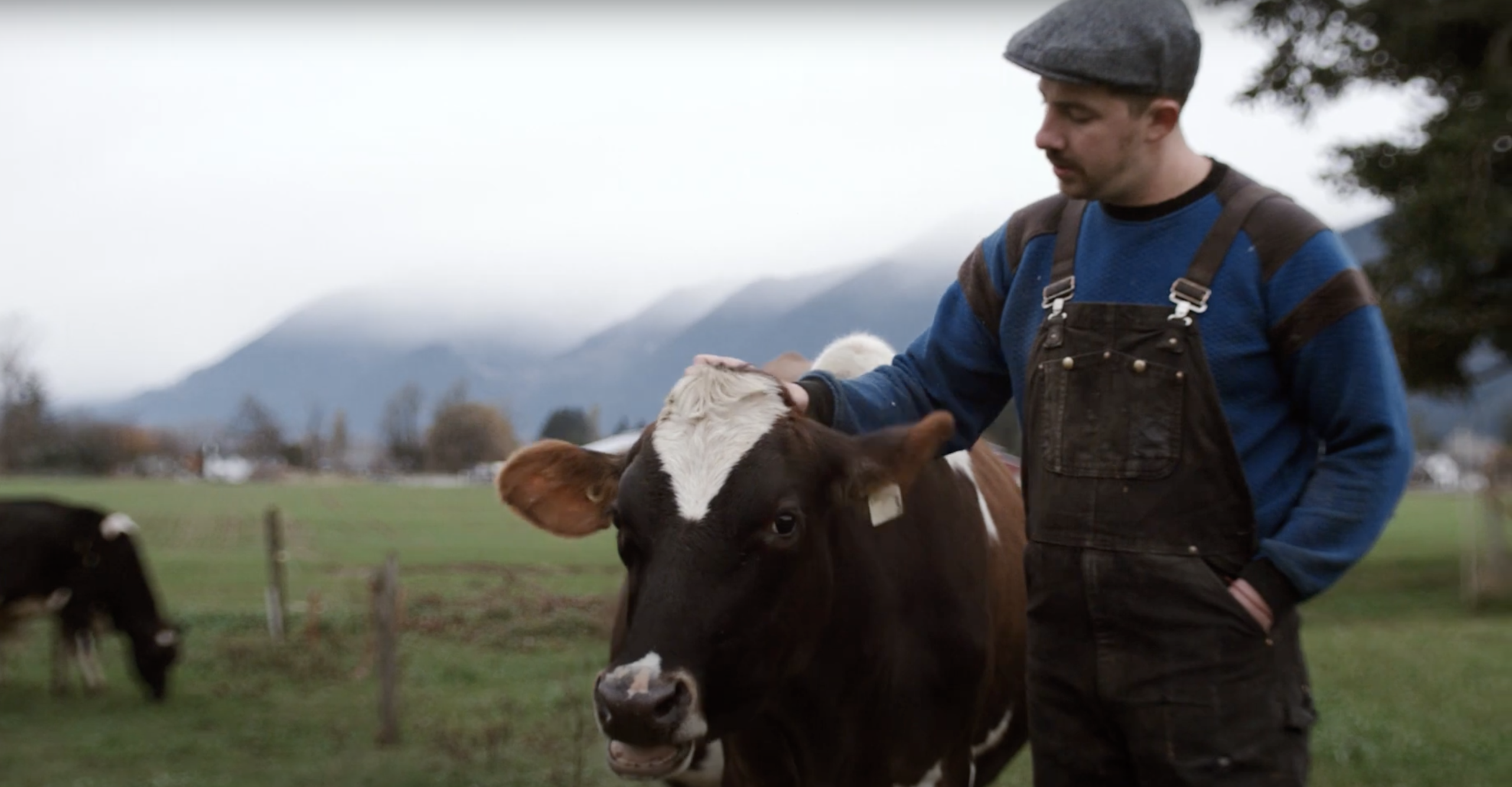
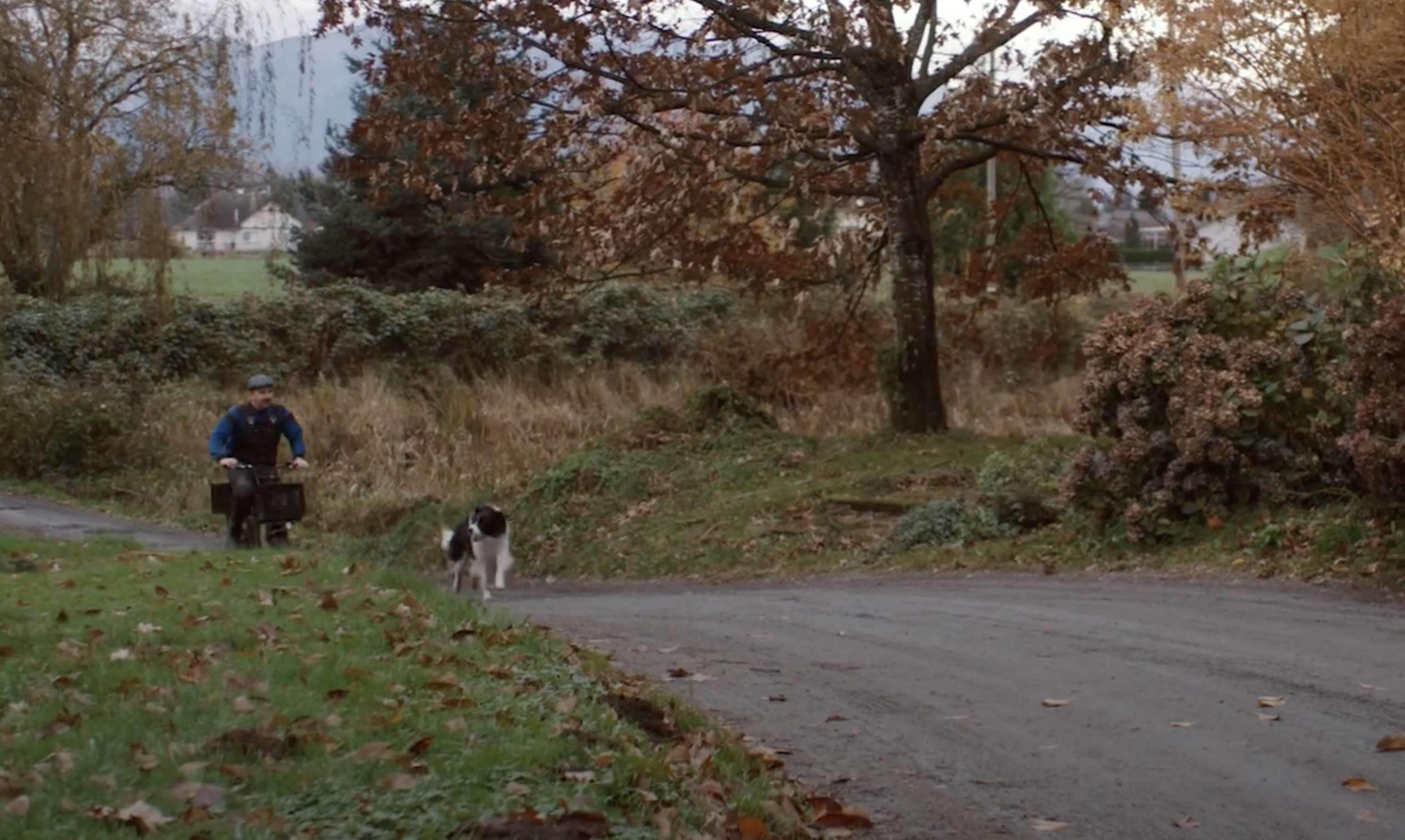
Obtaining organic certification for the smaller Chilliwack dairy farm Tom Balakshin and his parents work was mostly a matter of going through the process and getting all the paperwork done. The family’s approach on the farm since Tom’s great-grandparents started it nearly a century ago has been largely consistent with today’s certified organic standards anyway.
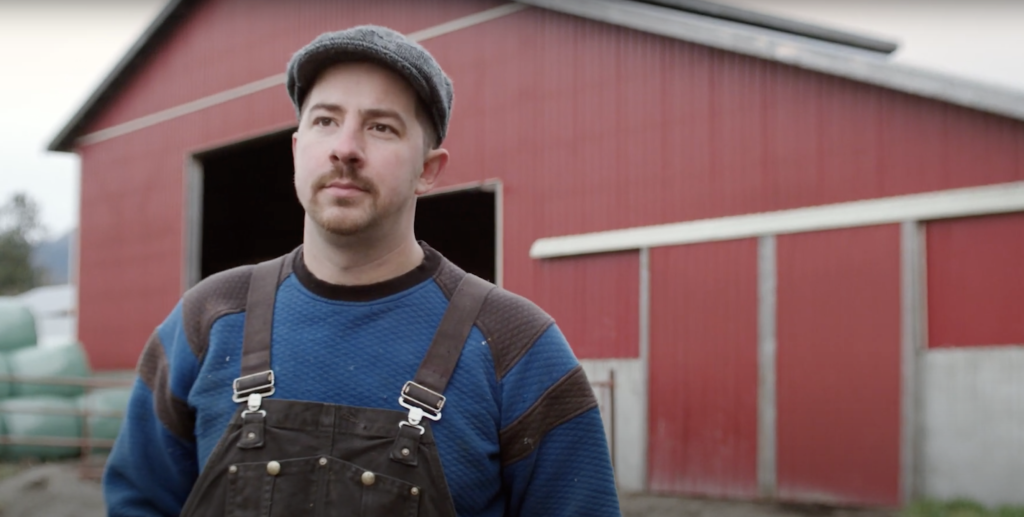
Tom’s great-grandparents founded the farm in 1925, five years after they (separately) fled Russia during the revolution. His great-grandfather held a small but successful farm in Russia, where he was active in the community, setting up a dairy cream collective and advocating for farmers. Such success was viewed as a threat by the revolutionaries, so they were forced to leave.
The two families both spent about five years in China after leaving Russia, separately immigrating to Canada by long boat rides in 1920 and settling in the Vancouver area. It was there the great-grandparents met in Vancouver’s newly-established Russian community, married, and purchased 25 acres tucked up against the Fraser River on the north side of Chilliwack to start their farm.
In their time, Tom’s grandparents added another 50 acres, his parents a few more. The family didn’t farm dairy at first, but focused on chickens and hatching chicks for other poultry farms. Tom’s grandparents started converting to dairy in the 1940s, a direction his parents continued when they took over operations in the 1980s.
Today, they milk 52 cows on about 80 acres.
They were certified organic earlier this year after a four-year process – three years required for the land to be certified organic, then another year of the cows being on the organic farm for them to be certified as well. Their first certified organic milk was trucked off the farm March 1, 2021.
“We were so close to organic already,” Tom says. “My folks have always been in the organic mindset of taking care of the system in which you farm.
He adds that being certified organic isn’t just a matter of what you feed the cows, but managing the entire land-base.
“You need to have pollinators, so you need native plant species. You need enough wooded areas for bird nesting habitat, so you have predators for flies.
Organic certification also requires dairy farmers to give their cows access to large areas of pasture.
“We’ve always pasture fed, which is the biggest hurdle to moving to organic dairy farming,” Tom says. “Each cow has to have access to a third of an acre – which is a lot.”
Tom is quick to point out that a lot of conventional dairy farms do many of the things required to be an organic farm, but are maybe missing a few items on the checklist and haven’t done the extensive paperwork required. Tom handled the paperwork for his parents as they made the transition to certified organic over the last few years.
In their 60s and 70s now, Tom’s parents still run things. He lives in a tiny house on the farm and is taking on more of the work over time. A conversation is underway with his two brothers about how to fairly handle things when Tom fully takes over operations.
“What my parents really want is to be present and advise me and help out where they can but not carry the stress of farming, and I welcome that,” Tom says. “I don’t think they’ll ever fully retire.”
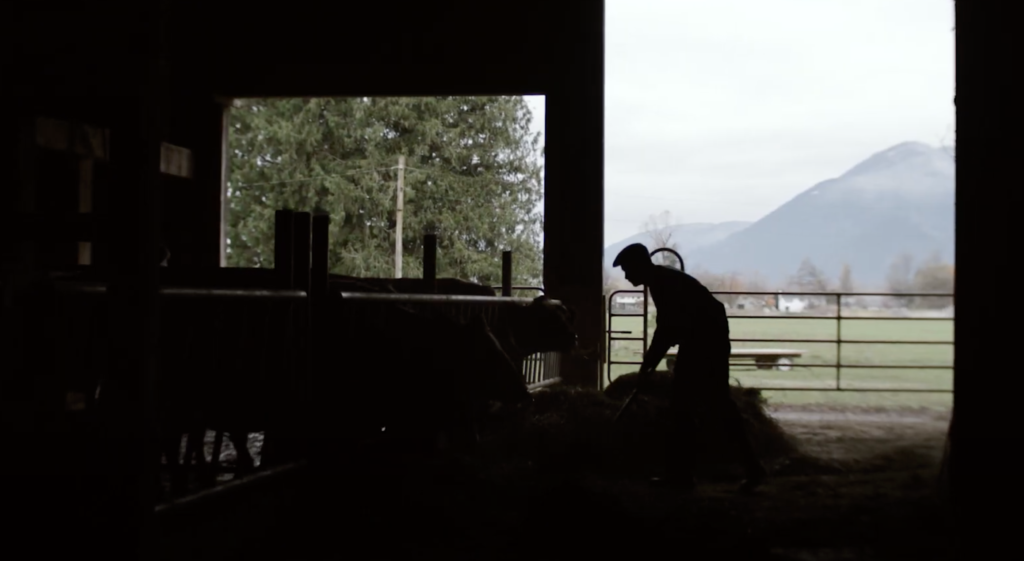
After a childhood of farm chores, Tom initially did not plan to take over the farm, but fell in love with it as a young man after spending a decade away – roaming the world setting up broadcasting systems for the Olympics and other global sporting events. He worked games in Russia, Korea, London, and Toronto, becoming part of a nomadic circuit of specialists putting on the events.
Between contracts he’d often return home for a while to help out on the farm.
“Over time I realized I was less likely to take off, because I was starting to enjoy the work on the farm, and being around my folks,” he says. “Working with my parents is such a unique situation, learning from them, working with them on the farm every day.”
He took fewer and shorter event contracts over time, the last one a three-month stint to work the 2018 Olympics in Korea.
“I do miss those. Watching the Olympics now there is a bit of nostalgia for sure, but it’s nice to settle down and be home.”
At home, he and his partner of almost 4 years live together on the farm in an old panel van he has converted to a tiny home, complete with solar panels and a composting toilet. They park it next to a deck and their vegetable garden. That’s when she’s home, at least. Much of the time Tom’s partner, a lawyer by training, travels the world with Red Cross International working in areas of armed conflict helping people in need. In the summer of 2021 she was in Ethiopia supporting people impacted by a brewing conflict in the region.
“I’ve always wanted to live in a van and live the tiny home life,” he says. “I like the idea that it’s a very low impact lifestyle, and being able to live in something I built without high rental costs. You realize you don’t need much.”
